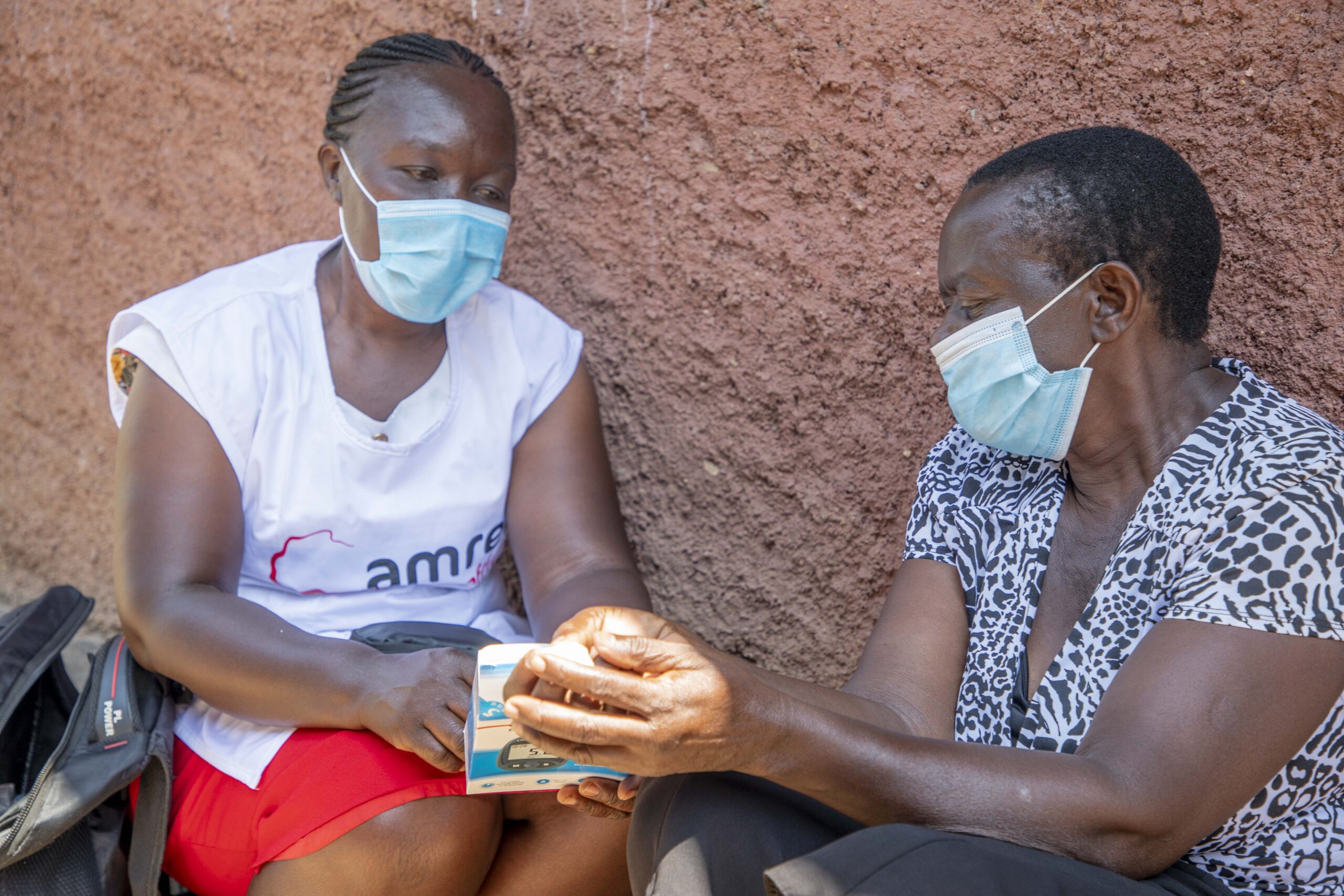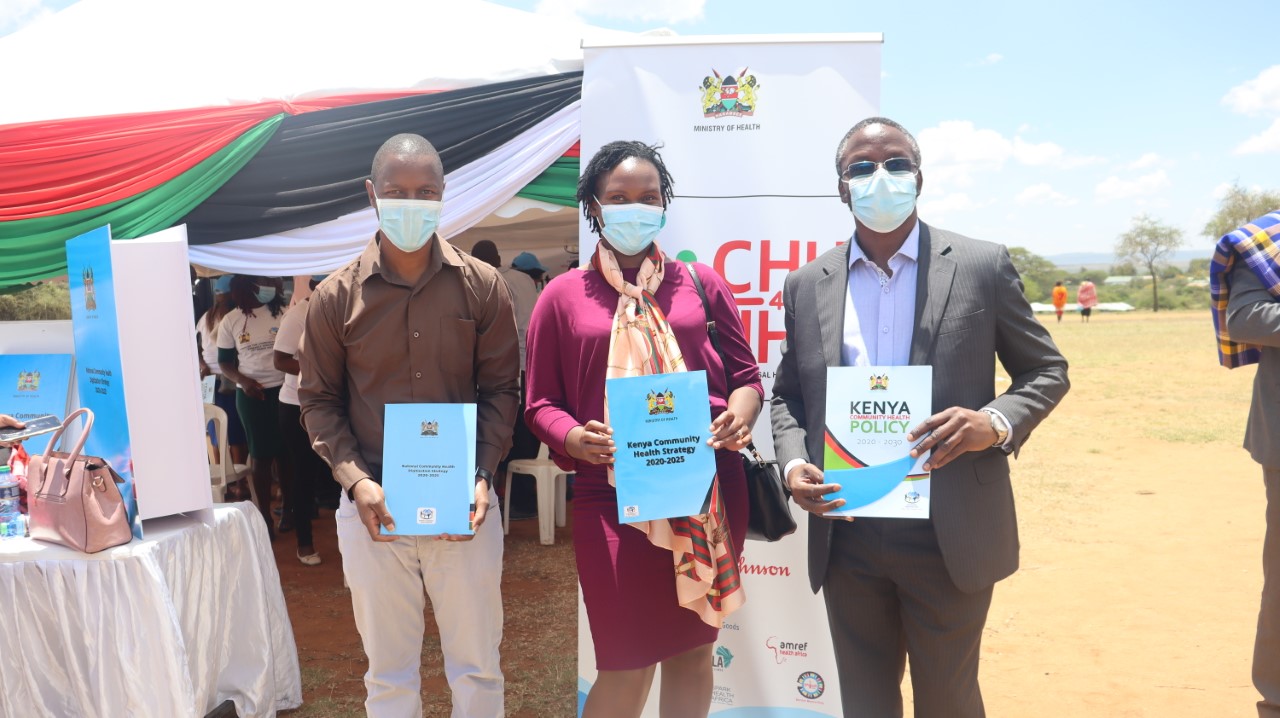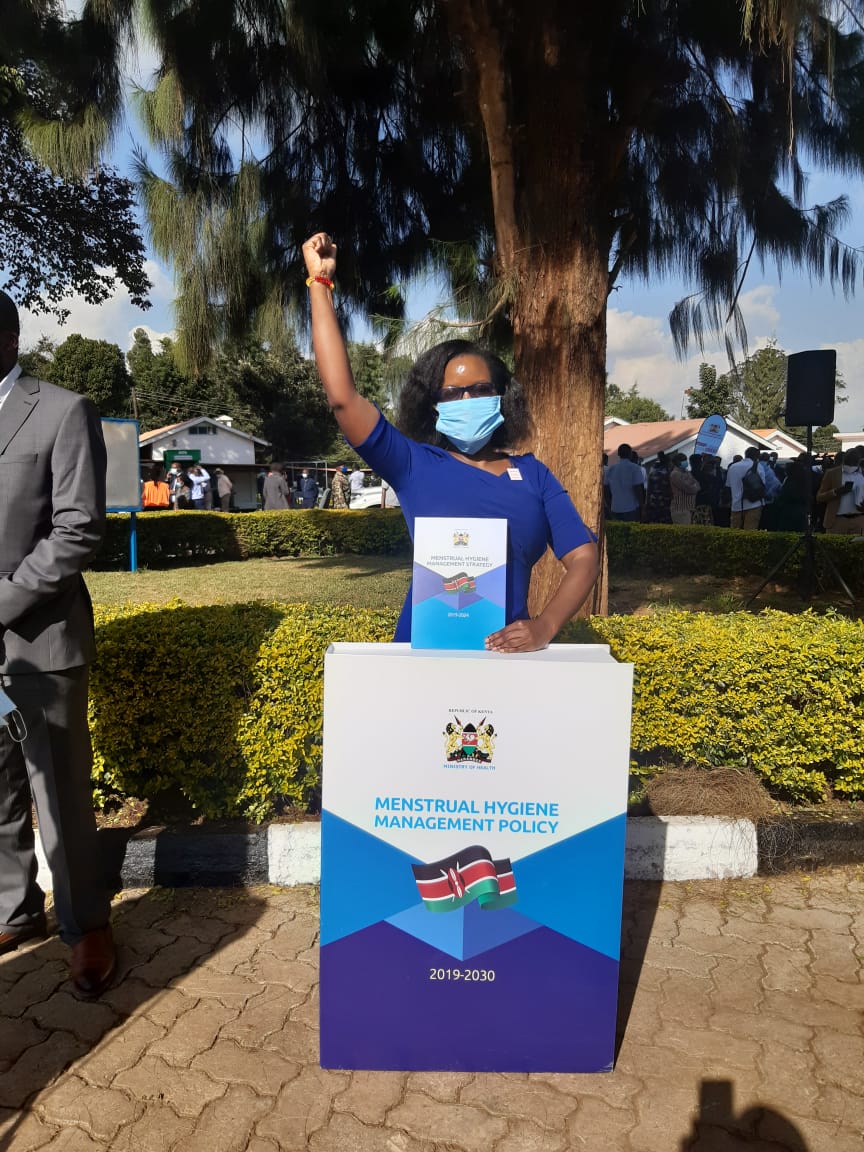Women Led Self-Help Group Changing Lives in Kitui County
Wednesday, 30 January, 2019

Katitika Self-Help initiative is one of the groups that has benefited from Amref Health Africa in Kenya’s Kitui Integrated Water, Sanitation and Hygiene (I-WASH) Project in Kitui west E sub-county, Kitui County.
It started as a small support structure of Community Health Volunteers (CHVs) who came together to help each other in dealing with problems they faced in their work, share experiences, as well as sensitise people about diseases that were prevalent in their communities. In 2006, they decided to register the group in order to help enhance their economic status. And thus Katitika self-help group was born.
Once formed, the pro-active members (13 women and two men), started economic and social empowerment projects through table banking. Members would take loans to start small business or meet their relevant needs. Most of the common problems pointed out by group members were the prevalence of water borne diseases and poor nutrition as a result of inadequate water supply to support farming. They realised most of their problems rotated around the lack of adequate clean and safe water owing to the semi-arid area.
“Every time we met as Community Health Volunteers, we shared the experiences we faced when serving our community. We realised diarrhoeal diseases were a common problem faced by each group member within their families and the community,” said Group Chairlady Rose Kalekye Mutua.
In 2015, Amref Health Africa in Kenya through the Kitui Integrated Water, Sanitation and Hygiene (I-WASH) project came on board and constructed a giant well in their community. It was this water supply that changed their lives completely. The members of the group were also trained on technology transfer and capacity building to facilitate maintenance and sustainability of the water sources beyond the planned project period.
The water reached over 1,200 people in their community which subsequently contributed to an increase in access to safe and adequate water from 34% to 54%.
This was enough to kick off their farming activity. The supply of water enabled them to start small scale farming by planting vegetables such as sukuma wiki, tomatoes and kales. The I-WASH project supported them with a greenhouse which boosted their farm products.
 The farm produce is consumed by their families and sold to members of the community which helps boost their health and nutrition. From the humble beginnings of this group, members are now operating viable businesses generating income that helps their families and communities.
The farm produce is consumed by their families and sold to members of the community which helps boost their health and nutrition. From the humble beginnings of this group, members are now operating viable businesses generating income that helps their families and communities.
The group Chairlady explains how the project has had a positive impact on their lives. “Before construction of the giant well, I used to fetch water from River Kutembekia which took me five hours to make one trip. It was not safe and my family could fall ill several times. We suffered to get clean and safe water for our families. Today, we are happy to have clean and safe water. Our vegetables are flourishing and we are thinking of expanding our project by acquiring more acres of land for farming.
Every year, we share the money from our profits. We can also take loans from the group which help us pay school fees and buy food for our families. We sell the vegetables and fruits at affordable prices to communities and also educate them on proper nutrition.”
Rose’s tangible evidence of progress is also felt by fellow group member Kalimi Mulwa.
Like many women in her village, Kalimi would walk for over three kilometres to collect contaminated water at Kutembekia River. “Today, I only cover one kilometre to collect clean and safe water from Katitika giant well. The group has empowered me economically and the nutrition status of the households I am in charge of has improved. I have also started a small business through a loan from the group.”
Together, these group members help raise awareness about hygiene, sanitation, proper nutrition and promote practices that encourage food security. Sustainable access to clean and safe water has contributed to the group’s success.
Group secretary Kalimi Mulwa takes pride to be one of the only two men in the group.
“Since inception of this group, Amref has held our hand. Amref built the giant well and also trained us on nutrition and donated the greenhouse. We were also taught on the use of community skits, songs and drama to pass health messages.
Our dream and prayer is to pump this water wide and large and also to have adequate tanks and pipes,” he says.
Katitika group is now used as a model for other upcoming groups in the county. The success of the group and of their business would not be without the water. The group members’ livelihoods have improved and they are able to support their families.
The adoption of appropriate water supply technology options by the project such as construction of earth dams, infiltration wells, and giant wells had fmultiple uses of water for other economic activities such as agriculture and livestock keeping hence diversifying the community’s economic base. To date, the project has constructed 10 infiltration wells, 90 Giant wells and 25 sand dams. Through such intervention the project has been able to reach over 92,000 people.
Amref Health Africa teams up with African communities to create lasting health change.




